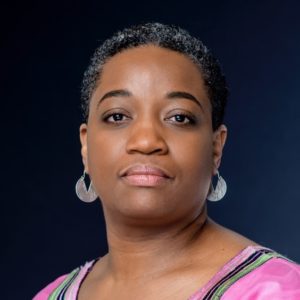 I’ve never been a huge fan of labels and I hate picking sides.
I’ve never been a huge fan of labels and I hate picking sides.
To this day I have bad memories of elementary school recess games involving mean kids pointing and picking the people they deemed suitable to be on their highly competitive yet not-so-serious dodgeball and kickball teams. As you might guess I was nearly always selected at the end of the process. No one wanted the un-athletic girl who couldn’t run fast and was sure to make their side lose.
I, too, was that teen who was unsure what political party to designate when I became of age to register to vote. I assumed my socially conscious mother was a Democrat and had heard whispers that my father was a Lincoln-era Republican. I never confirmed either and have teetered back and forth between Democrat and Independent most of my life as I’ve shaped my own views.
So it stands to reason that I feel completely uneasy about labeling myself and picking sides as it relates to religion. I became a Christian, publicly professing my faith in Jesus and getting baptized about the age of 10. Yet that’s never seemed enough for a society that craves details of your faith affiliation for the purpose of determining your camp. I can’t even begin to count the number of times people have asked what church I belong to.
For the record, and using the label that will make the most sense in this milieu, I am a progressive Baptist. Yes, we actually exist, unlike unicorns. I no longer “belong” to a church, but I am a member of and work for the Alliance of Baptists, a network of progressive Baptist individuals and congregations.
“The time is now for us to stop giving honor to labels, taking sides and marking theological territory.”
I believe God loves people who are LGBTQ or who identify as something else altogether; that all humans called by God to pastor should be allowed; that black, brown, red, yellow and white people should worship together with equal value and voice; and that (as another opinion writer suggested recently) God just might be a woman.
I believe there’s a bunch of really twisted stuff in the Bible mixed in with what is transformative and divinely inspired revelation from God. And, central to my faith resume is my radical belief in the love ethic of Jesus Christ.
Being a progressive Baptist for the most part fits who I am, even though I still have a really hard time wearing the label. I have an even more difficult time when I’m around people with labels defined much differently than mine, like conservative and evangelical. Almost instantly I return to recess and that playground where winning or losing is determined by the individuals chosen for either side.
I’m pretty sure my anxiety is the fault of that Spirit that dwells in me, nudging and prodding me all the time to be an agent of change. It’s the same Spirit that called me to preach the gospel years ago. And it’s the same Fresh Wind that isn’t going to stop bothering me until I act, and encourage others to do the same.
The time is now for us to stop giving honor to labels, taking sides and marking theological territory. The season is here to create welcoming, loving and affirming faith communities and structures that make honest and just space for individuals from different social, political, economic and theological locations.
“Time, a plethora of historical events and a ton of sin stand between those believers described in Acts and us today. But our charge is exactly the same.”
It is possible to mold faith communities and structures where power and privilege are deconstructed, racial and ethnic diversity is valued, full humanity is championed and worship expressions are a panorama of color and sound.
Unreal? Impossible? Nah, in fact we’ve been there before. Faith communities like I’m describing harken back to Christianity’s first congregation, birthed through Pentecost.
“The church was intercultural and multilingual from its inceptions,” Curtiss Paul DeYoung writes in Intercultural Ministry: Hope for a Changing World, edited by Grace Ji-Sun Kim and Jann Aldredge-Clanton. “Acts and the letters of the apostle Paul proclaim a narrative of a first-century church whose congregations from Jerusalem to Antioch to Rome were inclusive of a wide range of ethnic backgrounds and cultural perspectives.”
It wasn’t always easy and in some cases it was downright messy, as the scriptures illuminate. But it was the full embodiment of the church, a covenant community of crazies tied together by faith in a grace-giving, triune God.
Time, a plethora of historical events and a ton of sin stand between those believers described in Acts and us today. But our charge is exactly the same.
As Amy Butler writes in her chapter in Intercultural Ministry, “The call of the church is deeper and harder than what we have become in society. The call of the church is to stand in the gap, modeling and facilitating hard and painful conversations, midwifing the birth of common ground when the divides are so deep and the pain so raw and the perspectives so different that there seems to be no hope.”
Yet we who profess faith in the One who died, was buried for three days, and then rose again know there is hope, witnessed best through the Resurrection.
Today I choose to reconfigure that old playground, designing a new space for recess that encourages all who play in it to work in tandem and free of labels and sides for the glory of God. Will you join me?
